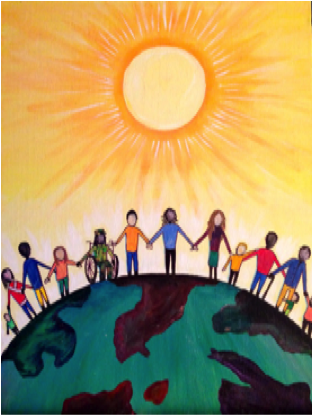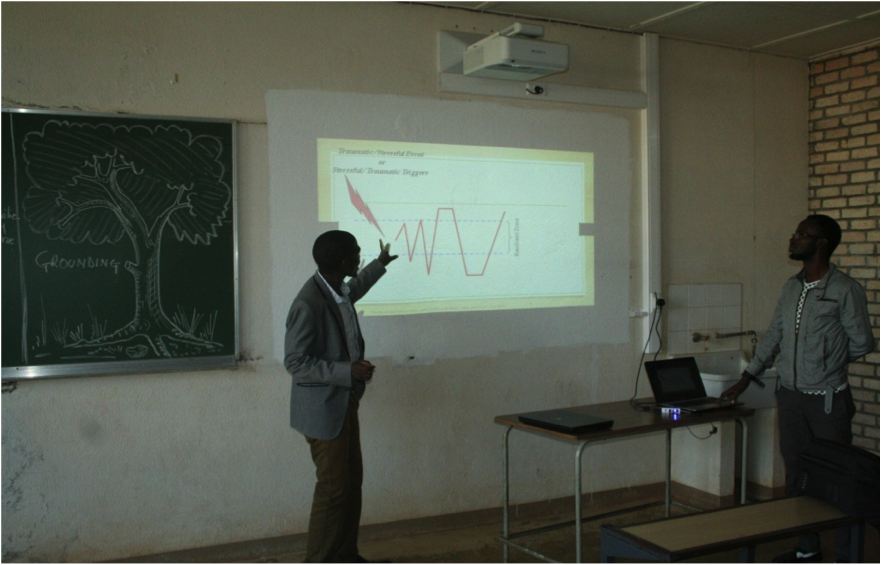Rwanda (2019)
2019 marked the 25th anniversary of the genocide against the Tutsi in Rwanda.
TRI has been supporting the work of the Rwanda Resilience and Grounding Organization (RRGO), whose goal is to build resilience and community for both genocide survivors and perpetrators to live in harmony, peace, and mental wellbeing. Community Resiliency Model (CRM) skills trainer Samuel Habimana, the Executive Director, has trained community members in CRM and is leading a research project with genocide survivors.
The following is just one example of the impact CRM skills has had on participants’ lives:
“I am widower from 1994 genocide against Tutsi. I lost 3 children…I lived in poor and miserable life. I was feeling depressed, insomnia and a lot of fear and I was not able to [be] happy anymore… However since I started this [CRM skills] training, the second day I changed and last night I slept and now I feel I can sleep even now. I am feeling well and I will keep using this skills. Also, I thought that my future is possible because I now feel positive and my heart is calm and relaxed.”
Since being trained in 2015, Samuel Habimana, a CRM teacher from Rwanda, continues to assess the impact of CRM in healing trauma among survivors of the 1994 genocide. In 2018, he provided a CRM Skills training to 130 survivors and found a statistically significant reduction in stress symptoms. He also completed a training in December of 2019, wherein he provided a two-day training of the CRM skills to 21 university students who were born during the genocide (i.e., a population currently exhibiting increased rates of suicide, drug use, and drop out). One of the participants had this to say after the training:
“My family were [killed] during [the] genocide against Tusti. I came to study medicine and nursing in order to have [an] impact in my community. Previous days, I asked my self how I would contribute in community while I know…that I [also have] problems. But these trainings showed me that I have my own ability, which helps me to live, and I will keep [living] and help other[s] through practice of resources.”



